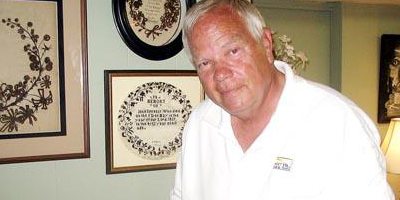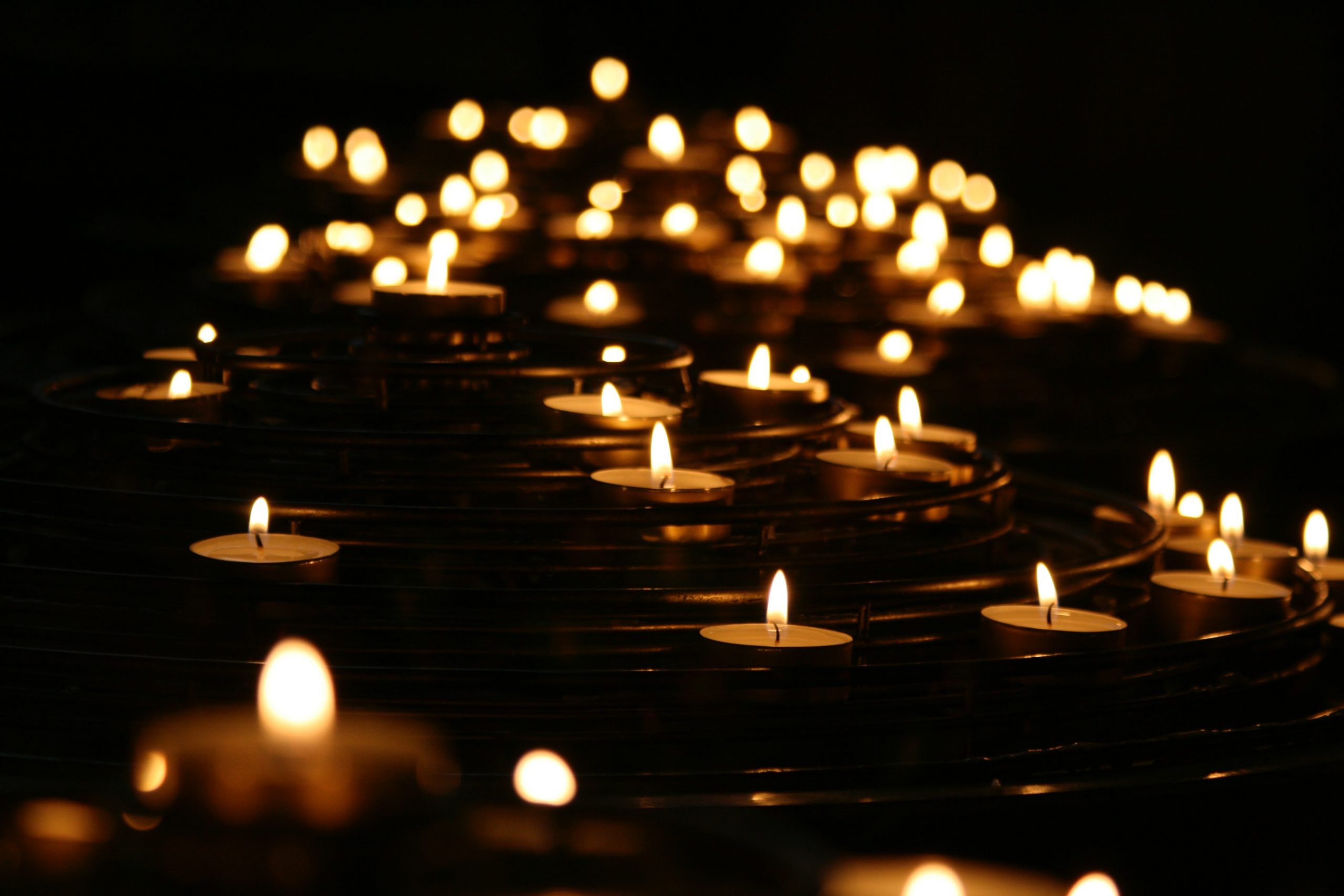Funeral Home Owner Finds Humor in Afterlife, Not A Downer Business

Robert Herr prizes his collection of jewelry made from the hair of the dead. That’s not as morbid as it sounds. Herr, 63, is an undertaker and avid funeral memorabilia collector.?
“I don’t like the word mortician,” Herr said. “I help people undertake different tasks. Fixing hair, bathing bodies.”
The hair jewelry, most of which is more than 100 years old and quite intricate, is part of Herr’s collection.
“Some people think keeping grandpa’s hair is sickening,” Herr said. “But it was a way for these people to remember, before we had cameras.”
His Downtown Collinsville business, Herr Funeral Homes and Cremation Services, displays many of his finds.
Abraham Lincoln is a particular focus.
Original copies of newspapers announcing his death hang framed on the wall. A plaster of paris life mask of Lincoln’s head is nearby. A few strands of hair reputed to be Lincoln’s are encased behind glass.
Relics of funerals past are also of interest to Herr.
Handing over a wooden cylinder with a series of sharp prongs, Herr said “Years ago, the diagnosis of death wasn’t always accurate. There was even a Society for the Prevention of Premature Burial.”
With one sharp poke from the device, the assumed-dead might be spared an unnecessary departure from this mortal coil.
Herr has many such antiques.
“It’s amazing,” said Ryan Zinke, manager at Herr’s Funeral Home. “Some of it has gone to the Museum (of Funeral Customs) in Springfield.”
Herr displays memorial ribbons to honor the dead. Old embalming fluid recipes. Teddy bears made from the shirt of dress of a deceased mother or father.
Some are very valuable.
“The Smithsonian wants this,” Herr said, pointing at a cast iron child’s burial case. The case, patented by Dr. Almond Fisk in 1848, has a distinct child mummy vibe. That might explain its lack of sales.
A turn-of-the-century German burial shroud, or Totenhemd, hangs near the burial case.
“Children used to be required to own one of these before they could be married,” Herr said. “Now we don’t even talk to children about death.”
That’s a point of contention for Herr, a man who grew up around death working in the family’s funeral home.
Generations ago, rampant disease made death a far less abstract concept for young people. Death didn’t occur in antiseptic hospital rooms. Children weren’t detached from the process.
“Everything is sterile now,” Herr said. “Kids used to be there when people died. They were part of the process. Now they’re afraid. But it shouldn’t be scary.”
A curious calling
Herr tries his best to make it so. A life in the undertaking business has given him an offbeat sensibility.
When his cell phone rings, it makes an eerie, ghost-like sound. His company Twitter account welcomes readers with “Good Mourning.”
“This is really not a downer business,” Herr said. “People entrust us with their most valuable possession. It’s not their bank account; it’s their mother. We have to earn that respect.”
After decades of collecting, Herr is still transfixed by his memorabilia.
He remembers a group of local World War I veterans who met in his chapel every year to honor fallen comrades.
“By the end there were just six guys, then four, then three,” he said. “But they’d still show up and salute their flag.”
When the last veteran died, Herr decided to give their flag a permanent display in his chapel, which is decorated with windows, wood and other items he’s collected from churches that no longer exist.
He points out some memorial needlework, done by the daughters of a man who died in the 19th century.
“Can you imagine how long this took?” he said. “I’d be so lucky to have someone do something like this for me.
“I can’t believe people throw this stuff away.”
But they do, and when Herr is gone, he hopes someone will curate his items with the same kind of care.
“It’s important to remember, to pass things on,” he said.
Whether that happens is an open question. The Springfield museum displaying some of Herr’s pieces folded earlier this year.
“If I don’t collect this stuff who will?” Herr said. “Much of the hair jewelry was given to me. People will say their kids don’t care and they’d rather me have it than see it thrown away.”
After years in the funeral business, Herr’s seen some unusual services. He’s had people ask to ignite the flame during the cremation of loved ones and read a book while the body burns. He’s had duck decoy and bowling-themed funerals.
But he doesn’t have anything elaborate planned for himself.
“I just hope people remember how much I enjoyed this business,” he said. “I’d prefer it be a joyous occasion.
“But I wouldn’t mind if there were a couple tears shed.”
Source: Suburban Journals




